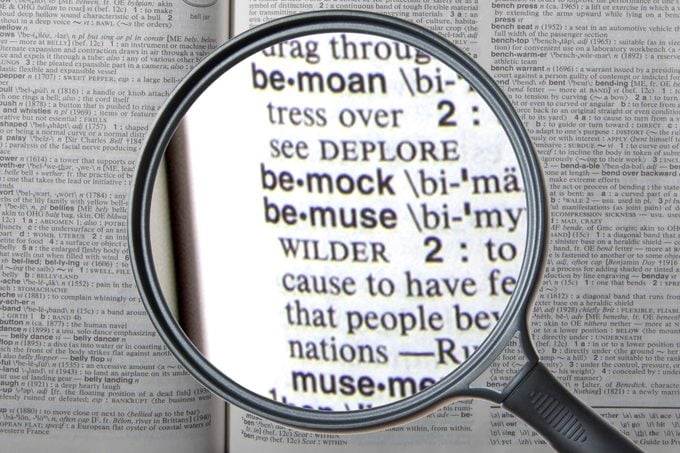Is “Funner” a Word? Let’s Settle the Debate
Updated: Nov. 07, 2022

Why don't we like to put an "-er" on the end of "fun," the way we do with other one-syllable adjectives like "cute" or "big"?
Even if you might not know what they’re called, or the nuances of the grammar behind them, you probably know the basics of how comparatives and superlatives work in the English language. When you want to compare something, you often add an “-er” to the end of the comparative adjective. For instance, “The kitten is cuter than the full-grown cat.” To make it the superlative version, or the one that most exemplifies that adjective, add an “-est”: “That black-and-white kitten is the cutest one in the pet store.”
Of course, some adjectives don’t form superlatives this way. For instance, you wouldn’t say, “The twist was surprisinger in the book than it was in the movie.” You would say that it was more surprising. Adding “more” or “most” before an adjective is another way to make it comparative and superlative, respectively. And the general rule is that one-syllable words get the suffix, and polysyllabic words get “more” or “most.” That is, unless the two-syllable word ends in a “y”; if that’s the case, you will add the suffixes and change the “y” to an “i” (think “prettier” and “prettiest”). Here are some more grammar rules you should know to sound smart.
But what about the word “fun”? This simple adjective only has one syllable, so you’d think you’d add suffixes on it to create superlatives. But if you were to say “I think Magic Kingdom is a funner park than Epcot” or “Disney World was the funnest vacation ever!” you might get some strange looks. It doesn’t sound quite right; it sounds like something cute-because-it’s-wrong that a little kid would say. But…why? “Fun” is one syllable, so why do we opt for “more fun” as the comparative—especially considering that the uber-similar word “funny,” which has more syllables than “fun,” uses the suffixes with no problem?
Well, the confusion comes from the fact that the word “fun” was not originally an adjective. Until the early 19th century, it was mostly just a noun, and it gained its meaning as “amusement” in the 18th century. (It used to mean “trickery” or “deception”!) But as early as the 1800s, people began using it as an adjective, the way we’d describe “a fun time” or “a fun place” today.
And, as they are wont to do when people use words wrong, grammar experts freaked out. They decried this usage, one professor saying that hearing the adjective version of “fun” “[induced] severe nausea” in him, according to Merriam-Webster. But obviously, that didn’t stop people from using “fun” as an adjective, which brought up the question of its comparative and superlative forms.
Basically, language is still evolving. Grammarians have mostly come around to the use of “fun” as an adjective (though some dictionaries still call it informal), but the comparative and superlative forms are a bit more wishy-washy. Surrounding this debate, there was (and remains) a mentality of “Fine, you can use ‘fun’ as an adjective…but, like, it’s not really one, so it can’t follow the rules of real adjectives.” And somehow, some way, thanks to the weird machinations of language, that mentality helped popularize “more fun” and “most fun” in favor of “funner” and “funnest.”
But if you’re thinking that that logic is downright silly, most dictionary establishments agree with you. And they also agree that…the answer to “is funner a word?” is yes. If you want to consider “fun,” as an adjective, a word, then “funner” is indeed a word, as is “funnest,” per normal rules of adjective formation. But this doesn’t mean that “more fun” and “most fun” are incorrect, though; in fact, in formal writing, you’ll probably still want to use those instead of “funner” and “funnest.”
But, bottom line? The English language is chock-full of confusing grammar rules, like these 20, as is; there’s no need to insist that a word break the common rules of language just because we didn’t used to use it in a way we do now.





















